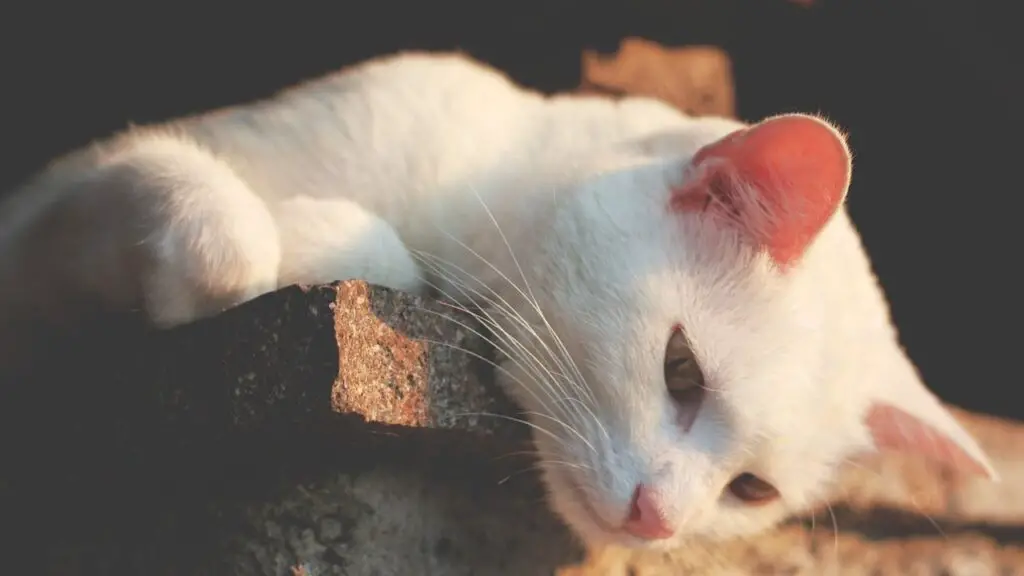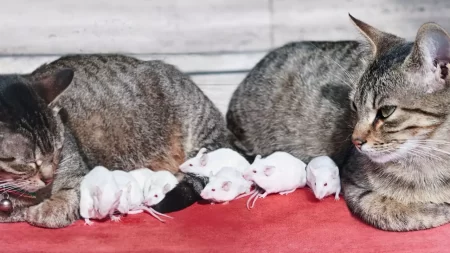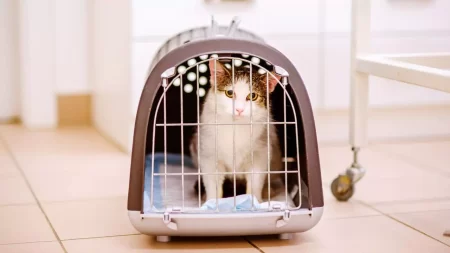Cats have more than 30 ear muscles that exhibit remarkable sensitivity to touch.
When you touch their ears, they may twitch them automatically as a reflex to dispel the sensitive feeling.
It does not mean that they are in pain or annoyed unless they show other signs of discomfort such as scratching or shaking their head.
Cats also twitch their ears when they are sleeping or listening to their surroundings.
Do all cats react the same way when their ears are touched?
No, not all cats react the same way when their ears are touched.
Some cats may enjoy it and feel relaxed, while others may dislike it and feel annoyed.
Some cats may tolerate it without showing much emotion, while others may act aggressively or try to get away.
Cats have different personalities and preferences, so it’s important to respect their boundaries and observe their body language when touching their ears.
Can a cat’s ears twitch for other reasons besides touch?
Yes, a cat’s ears can twitch for other reasons besides touch. Some of these reasons are:
- Trying to focus their attention on something they heard.
- Having an infection, polyp, ear mite, injury, or foreign object in their ear.
- Feeling excited, agitated, or stressed.
- Dreaming or listening to their surroundings while sleeping.
If your cat’s ears twitch frequently or excessively, it could be a sign of a medical condition called feline hyperesthesia syndrome (FHS), which causes muscle spasms and behavioral changes.
You should consult your veterinarian if you suspect your cat has FHS or any other ear problem.
Are there any health conditions that can cause a cat’s ears to twitch more frequently?
Yes, there are some health conditions that can cause a cat’s ears to twitch more frequently. Some of these are:
- Ear infections, which can cause inflammation and irritation in the ear canal.
- Ear mites, which are tiny parasites that feed on ear wax and skin debris.
- Polyps, which are benign growths that can block the ear canal and affect the eardrum.
- Allergies, which can cause itching and inflammation in the ears.
- Feline hyperesthesia syndrome, which is a neurological disorder that causes muscle spasms and behavioral changes.
If your cat’s ears twitch more than usual, you should check their ears for any signs of redness, swelling, discharge, odor, or foreign objects.
How do cats use their ears in communication with other cats and humans?
Cats use their ears in communication with other cats and humans in various ways. Some of these are:
- Moving their ears forward to show interest, alertness, and friendliness.
- Moving their ears backward or sideways to show annoyance, fear, or aggression.
- Moving their ears flat against their head to show submission, defense, or pain.
- Twitching their ears to show excitement, agitation, or stress.
- Rubbing their ears against another cat or human to show affection, trust, or marking.
Why do some cats enjoy having their ears touched while others don’t?
Some cats enjoy having their ears touched while others don’t because of different reasons. Some of these are:
Personality and preference: Cats have different personalities and preferences, and some may like ear rubbing more than others. Some cats may be more sensitive or ticklish in their ears, while others may be more relaxed or tolerant.
Past experiences: Cats may associate ear touching with positive or negative experiences, depending on how they were handled as kittens or adults. Cats who were socialized and petted gently may enjoy ear rubbing more than cats who were neglected or abused.
Pheromones and scent marking: Cats have scent glands in their ears that release pheromones when they are rubbed. These pheromones are used to communicate and mark their territory, and also to bond with other cats or humans. Cats who enjoy ear rubbing may be expressing their affection and intimacy, while cats who don’t maybe avoid sharing their scent.
Health conditions: Cats who have ear problems such as infections, mites, polyps, allergies, or injuries may not like ear rubbing because it causes them pain or discomfort. Cats who have neurological disorders such as feline hyperesthesia syndrome may also dislike ear rubbing because it triggers their symptoms.







